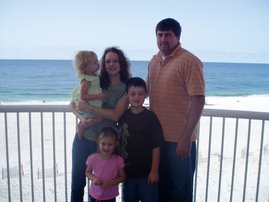
Hana’s Suitcase by Karen Levine (107 pages; 2 books) #7 & 8
Levine, Karen (2006). Hana’s suitcase. New York, NY: Scholastic, Inc.
Awards: Several Canadian and Jewish Awards; no U.S. awards found.
Grade Level: Middle School 4-6. This could also be read to third grade.
Author Credibility: Karen first read this story in the Canadian Jewish News. This story touched her to the point that she produced a radio documentary in 2001. A friend of hers called after the broad cast and convenienced her to write a book. She then proceeded to write and with the help of George Brady and Fumiko Ishioka a book that tells a powerful story.
Summary/Response: This is a story of a Jewish child that grew up in Czechoslovakia in a town called Nove Mesto. It alternates chapters from modern day Japan and World War II. It tells of the happy beginning Hana had with her family. She belonged to a loving family that helped those in the community who were less fortunate. This flows to helping refugee Jews during the war. Hana’s happy life changed however when Hitler takes over Czechoslovakia. Limitations began being placed on the Jews in the village and life was hard for them. They could no longer play on the playgrounds or go to school. After about a year, Hana’s mother and father were arrested and taken to refugee camps. For the first time in their lives Hana and her brother, George, were alone. Their uncle took them in until Hana and George were taken to a refugee right before her eleventh birthday. Life was hard on Hana in her brother, but the adults at the camp tried their best to keep the children preoccupied. They even held secret schools teaching art, sowing, and music. Harmony did not last long. George was sent to another camp and left Hana alone. Hana eventually found herself deported and was happy. She and the others were placed on the familiar cattle cars that she traveled on before on her way, she thought, to be reunited with her brother.
I had to fight back the tears as I think of a girl the same age as the children I teach going through all of the hardship she endured. The Holocaust is taught in schools and we hear about it from time to time on documentary channels, but nothing brings this horrible injustice home like a true life account. Hana’s story was lost along with a majority of the millions of Jews who lived through the horror of concentration camps. However, with the diligence of Fumiko Ishioka, the director of the Tokyo Holocaust Education Resource Center in Japan, Hana and her story was found for the children of Japan to hear and eventually other children around the world. I don’t want to say too much because one of the great features about the book is how Levine builds the story through the modern story of Fumiko Ishioka and the flashbacks of Hana’s life.
I had to fight back the tears as I think of a girl the same age as the children I teach going through all of the hardship she endured. The Holocaust is taught in schools and we hear about it from time to time on documentary channels, but nothing brings this horrible injustice home like a true life account. Hana’s story was lost along with a majority of the millions of Jews who lived through the horror of concentration camps. However, with the diligence of Fumiko Ishioka, the director of the Tokyo Holocaust Education Resource Center in Japan, Hana and her story was found for the children of Japan to hear and eventually other children around the world. I don’t want to say too much because one of the great features about the book is how Levine builds the story through the modern story of Fumiko Ishioka and the flashbacks of Hana’s life.
National Standards: Language: Students read a wide range of print and nonprint texts to build an understanding of texts, of themselves, and of the cultures of the United States and the world; to acquire new information; to respond to the needs and demands of society and the workplace; and for personal fulfillment. Among these texts are fiction and nonfiction, classic and contemporary works.
Social Studies: How is the world organized politically?
Illustrations: Black and white photographs, drawings, and primary source documents
Social Studies: How is the world organized politically?
Illustrations: Black and white photographs, drawings, and primary source documents
Access Features: Introduction, Afterword, Acknowledgements. This is a chapter book that reflects alternately from modern day Japan to the Nazi era.
Related Texts: I Never Saw Another Butterfly by Hana Volavkova- discusses the Terezin Concentration Camp where Hana Brady was held and the pictures the children drew there. The Last Brother: A Civil War Tale by Trinka Hakes Noble- talks of children in civil war battle; it helps make the realization that children are not exempt from the hardships of war.
Classroom Use: There is the obvious fact that this book can be used when discussing WWII and the Holocaust. It is also a great book to use and teach children about tolerance of others from other cultures and religious backgrounds.

5 comments:
Christy,
After your presentation of this book in class the other night, I really want to read this book. You did a great job bringing out key points of the book.
Debbie
I'm so intrigued. I can't wait to read this book!
Allison
Did you check the Notable Social Studies Tradebooks list to see if it was recognized there?
Christy,
After you presented this book I really wanted to read it! One of the books that I read was Luba: The Angel of Bergen-Belsen, about a woman who saved orphaned children in a concentration camp. I was moved by that book and I bet you'd like it too!
I had never even heard of this book. I am definitely going to read it!
Post a Comment